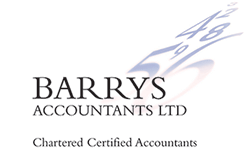Annual accounting: how are interest and late payment penalties calculated?
If you use the annual accounting scheme, you will submit one return each year instead of four or twelve. What are the potential traps if you don’t meet the scheme conditions?

Payments on account
Although you will only submit one annual return, your business must make regular payments on account throughout the year, based on your previous year’s tax liability. The payments must be made by direct debit, standing order or other electronic means and HMRC will specify the due dates in advance. You will usually make nine monthly payments during your annual accounting year from months four to twelve, each payment will be 10% of your previous year’s liability, although you can make three quarterly payments in months four, seven and ten instead. Each quarterly payment will be 25% of your previous year’s liability. The balance of tax owed will be paid to HMRC after you submit your annual return. To take advantage of the quarterly payment option, you must apply to HMRC, usually when you join the scheme.
Your payments on account might be too high if your business has less output tax to pay or more input tax to claim than in the previous year. You can contact HMRC’s Annual Accounting Registration Unit to reduce them.
What about late payment interest?
The annual return must be submitted within two months of the end of your annual accounting year. The two-month deadline also applies to the balancing tax you owe, i.e. it is reduced by the in-year payments on account you made.
Example. John’s annual return shows a liability of £15,000. He made nine payments on account of £1,000, so must pay the balance of £6,000 still owed within two months of the end of his annual accounting tax period.
Interest. Your business will be charged late payment interest from the first day that your balancing payment is overdue until the date when you settle your dues. However, you will not be charged interest if you make late interim payments during the year. In such cases, HMRC will send you a reminder to make the interim payment if you have missed the deadline.
Trap. Although HMRC will not charge interest on late interim payments, an officer has the power to remove your business from the scheme if you persistently pay them late.
Late payment penalties
If you do not pay the tax owed within two months of the end of your annual accounting year, HMRC will charge a 2% penalty on day 16 after this date. Any tax you still owe by day 30 will incur a further 2% penalty. A further penalty based on an annual rate of 4% will apply thereafter. However, you will not be charged a late payment penalty if you miss any of the deadline dates with the interim payments on account, it is only the annual return that counts.
If you submit your annual return on time and the balancing tax is a repayment due from HMRC, you will get repayment interest from the due date of the return, two months after the end of the period, to the date when HMRC repays what you are owed.
The annual repayment interest rate paid by HMRC is 1% below the Bank of England base rate so will not be significant in most cases.
Related Topics
-
Directors’ fees - can you escape PAYE?
You’ve been asked to join the board of a company in a purely advisory role. For tax and NI efficiency you want your fees to be paid to your own company. Does this arrangement fall foul of HMRC’s off-payroll rules?
-
P46 (car) deadline
-
Filing deadline for self-assessment tax returns



 This website uses both its own and third-party cookies to analyze our services and navigation on our website in order to improve its contents (analytical purposes: measure visits and sources of web traffic). The legal basis is the consent of the user, except in the case of basic cookies, which are essential to navigate this website.
This website uses both its own and third-party cookies to analyze our services and navigation on our website in order to improve its contents (analytical purposes: measure visits and sources of web traffic). The legal basis is the consent of the user, except in the case of basic cookies, which are essential to navigate this website.